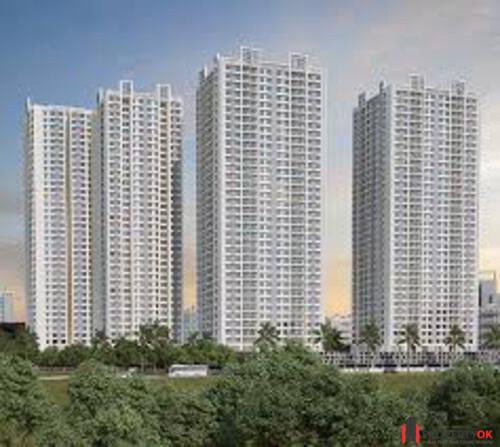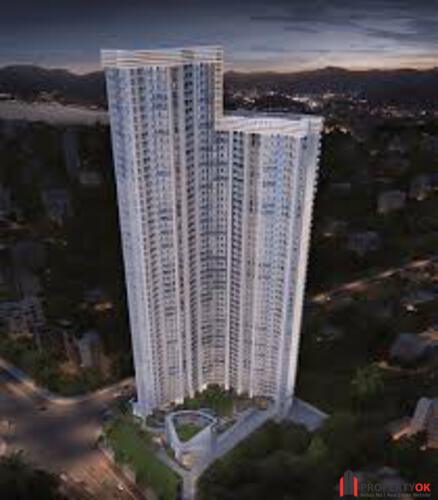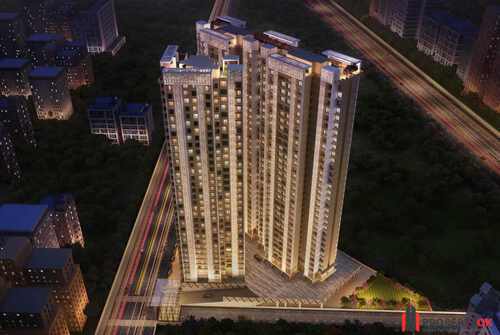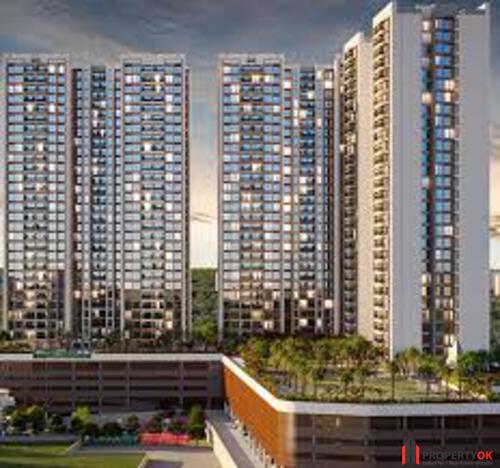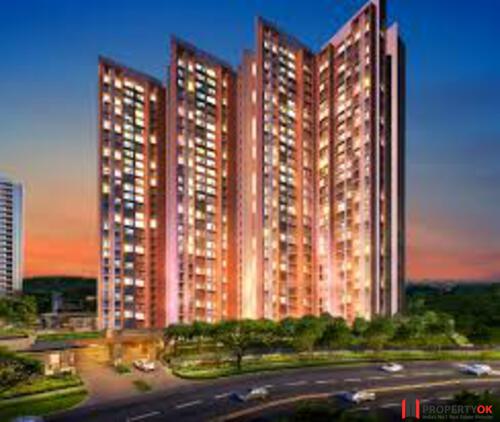Purchasing a flat in the bustling city of Mumbai is a significant milestone in one’s life. While the excitement of finding the perfect home is palpable, navigating the intricate details of property transactions is equally essential. One such aspect is understanding flat registration charges in Mumbai, a crucial step in the property buying process. In Mumbai, these charges include stamp duty, registration fees, and Goods and Services Tax (GST). The stamp duty amount is typically based on the property’s market value or the agreement value, whichever is higher. Understanding these charges is crucial, as they can significantly impact your budget when buying a flat in the city.
Let us help you find your perfect property! Click below to schedule a consultation.

What Are Flat Registration Charges?
New flat registration charges in Mumbai, often called property registration fees, are the expenses of legally recording the property transaction between the buyer and the seller. This process involves registering the property with the government to establish legal ownership. In Mumbai, these charges are governed by the Maharashtra Registration Act 1908.
Key Components of Flat Registration Charges in Mumbai
Understanding what constitutes these charges can help prospective homebuyers plan their budgets more effectively.

Stamp Duty & Registration charges
Stamp duty is the most significant component of registration charges. A state government tax is calculated as a percentage of the property’s market value or the transaction value, whichever is higher. The percentage of stamp duty and registration fees in Mumbai varies depending on factors such as the property’s location, type, and whether the buyer is a woman or a senior citizen.
Goods and Services Tax is applicable for under-construction properties, calculated as a percentage of the property’s value, following the prevailing GST rate at the time of the transaction.
Calculating these charges can be complex, involving multiple factors and percentages. Prospective buyers often refer to the government’s Ready Reckoner Rate, which guides property rates in various Mumbai areas.
It’s crucial to budget for these charges when planning a property purchase, keeping in mind any exemptions and concessions available, such as reduced stamp duty rates for women buyers and senior citizens and exemptions for specific transactions involving family members. Understanding these charges ensures a transparent and smooth property transaction in the City of Dreams.
Registration Fee
Home registration charges in Mumbai are charged for the registration of the property and is typically a nominal amount.
In Mumbai, home registration charges are part of the property buying process and are incurred for the official property registration with the government authorities. This registration is a crucial step as it legally establishes the ownership of the property. However, unlike other components of property transaction costs, home registration charges are generally nominal.
These charges are relatively small compared to the more substantial expense of stamp duty, which is often the most significant portion of the registration costs. While stamp duty is calculated based on the property’s market or transaction value, registration charges are usually a fixed or nominal fee set by the government.
These charges ensure that the property transaction is appropriately documented and legally recognized. It involves the submission of various property documents and deeds to the local registrar’s office. Once the property is registered, the buyer receives a legal document as proof of ownership.
Read this blog to find out best 20 properties to invest in India:
UNLOCKING OPPORTUNITIES: THE 20 BEST PROPERTIES TO INVEST IN INDIA
Franking Charges
Franking is the process of verifying and authenticating property documents. It is done at designated banks and involves a small fee.
Franking charges are a component of property transactions, primarily focused on verifying and authenticating property documents. The franking process is carried out at designated banks or authorized agencies and entails a small fee.
The purpose of franking is to provide an official seal or stamp of authenticity on various property-related documents. These documents can include property sale deeds, agreements, and other legal papers associated with property transactions. By franking these documents, the government officially validates them, ensuring their legality and authenticity.
The fee for franking is relatively tiny compared to other charges in a property transaction, such as stamp duty and registration fees. The amount may vary depending on the value and number of documents being franked and is commonly calculated as a percentage of the transaction cost.
GST
Goods and Services Tax (GST) is applicable to under-construction properties. It is calculated as a percentage of the property’s value and varies based on the GST rate in effect at the time of the transaction.
The calculation of GST on under-construction properties is relatively straightforward. It is applied as a percentage of the property’s value and is determined based on the prevailing GST rate at the time of the property transaction. The GST rate for real estate can vary, and it is categorized into different slabs, such as 5%, 12%, or 18%, depending on the specifics of the property and the construction project.
Read this blog to find out how to invest wisely in New Launch Projects in Real Estate:
HOW TO INVEST WISELY IN NEW LAUNCH PROJECTS IN REAL ESTATE: TOP TIPS AND STRATEGIES
Here’s how GST works in real estate:
- GST Rate: The applicable GST rate depends on various factors, including the type of property (residential or commercial) and whether it falls under the affordable housing category.
- Taxable Value: GST is calculated on the property’s taxable value, which is the total consideration paid by the buyer to the builder or developer.
- Input Tax Credit (ITC): One significant aspect of GST in real estate is the concept of Input Tax Credit. Builders and developers can claim tax credits for the GST they pay on raw materials, services, and construction-related expenses. This provision is intended to prevent the double taxation of the same goods or services within the supply chain.
- Affordable Housing: The government has provided concessions for affordable housing under GST, often resulting in lower tax rates for such projects.
Homebuyers need to be aware of the GST rate applicable to the property they intend to purchase, as it can impact the total cost of the property. When booking the property, the GST rate is typically the one that applies to the transaction. Buyers should also inquire with the builder or developer regarding any Input Tax Credit benefits that may be passed on to them.

Legal Consultation Fees
Although not categorized as direct registration charges, legal consultation fees play a vital role in ensuring the smooth and legally sound transfer of property ownership. Many homebuyers engage legal experts to oversee the entire property transaction process.
These legal consultations encompass a range of crucial activities:
- Due Diligence: Legal experts thoroughly examine the property’s history, ownership records, and legal compliance to identify potential issues or discrepancies. This due diligence helps buyers avoid future legal complications.
- Document Verification: Legal professionals meticulously review all property-related documents, such as sale agreements, property titles, and encumbrance certificates, to ensure their accuracy and legality.
- Legal Advice: Buyers seek legal counsel to understand their rights and responsibilities in the transaction. Legal experts provide insights into potential risks and guide buyers in making informed decisions.
- Agreement Drafting: In some instances, legal experts draft property-related agreements, ensuring that all terms and conditions are legally binding and secure the interests of all parties involved.
- Stamp Duty and Registration: Legal consultants assist in calculating the applicable stamp duty and registration fees, ensuring that the correct amount is paid to government authorities during the property registration process.

How to Calculate Flat Registration Charges
Calculating registration charges can be complex due to the various factors involved. It’s advisable to use the state government’s Ready Reckoner Rate, which guides property rates in different areas of Mumbai. Generally, the charges can be calculated as follows:
Total Registration Charges = (Stamp Duty + Registration Fee + Franking Charges + GST, if applicable)
Exemptions and Concessions
Mumbai offers certain exemptions and concessions to encourage property ownership, such as reduced stamp duty rates for women buyers and senior citizens. Additionally, there are exemptions for certain types of property transactions, like those between family members.
Learn about the legalities of a Release Deed by reading the blog below:
THE LEGALITIES OF A RELEASE DEED: WHAT YOU NEED TO KNOW BEFORE SIGNING IN INDIA
Wrap-up
Understanding flat registration charges is crucial in property buying, especially in a bustling city like Mumbai. You can check out the top flats in Mumbai for an easy way to buy an apartment. Accurate calculation and budgeting for these charges are essential when planning your property purchase.
To navigate this complex aspect of property transactions smoothly, seek guidance from legal experts or real estate consultants. Their expertise can ensure a hassle-free property transaction in the vibrant city of Mumbai. As you embark on your journey to find your dream flat, remember to factor in these charges and make informed decisions that align with your financial goals and aspirations. Happy home hunting with Propertyok!
Frequently Asked Questions
1. What are flat registration charges in Mumbai?
Flat registration charges in Mumbai include various fees associated with legally recording a property transaction. These charges typically consist of stamp duty, registration fees, franking charges, GST (for under-construction properties), and legal consultation fees.
2. How is stamp duty calculated in Mumbai?
Stamp duty in Mumbai is calculated as a percentage of the property’s market value or the transaction value, whichever is higher. The rate varies depending on factors like the property’s location, type, and whether the buyer is a woman or a senior citizen.
3. Are there any exemptions or concessions on flat registration charges in Mumbai?
Yes, Mumbai offers exemptions and concessions on stamp duty rates for specific categories of buyers, such as women and senior citizens. Additionally, there are exemptions for certain property transactions, particularly those involving family members.

 Thank You
Thank You
